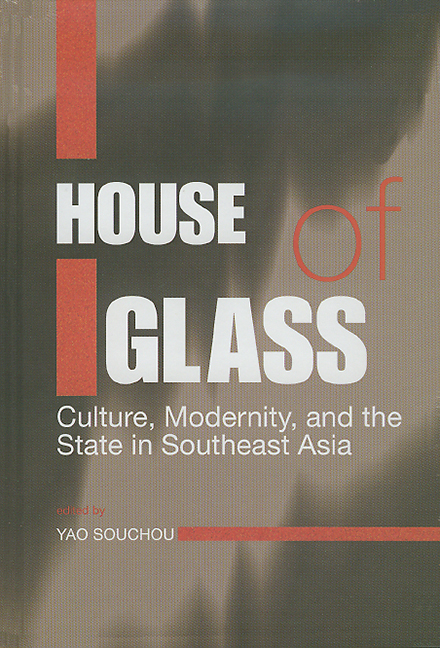Book contents
- Frontmatter
- Contents
- Preface
- Contributors
- Introduction
- Part One Local desire and global anxieties
- Part Two Identity, the state, and post-modernity
- Part Three State power, development, and the spectre of nation-building
- 7 Cultural claims on the new world order: Malaysia as a voice for the Third World?
- 8 (De)constructing the New Order: capitalism and the cultural contours of the patrimonial state in Indonesia
- 9 The state and information in modern Southeast Asian history
- Part Four
- Index
8 - (De)constructing the New Order: capitalism and the cultural contours of the patrimonial state in Indonesia
from Part Three - State power, development, and the spectre of nation-building
Published online by Cambridge University Press: 21 October 2015
- Frontmatter
- Contents
- Preface
- Contributors
- Introduction
- Part One Local desire and global anxieties
- Part Two Identity, the state, and post-modernity
- Part Three State power, development, and the spectre of nation-building
- 7 Cultural claims on the new world order: Malaysia as a voice for the Third World?
- 8 (De)constructing the New Order: capitalism and the cultural contours of the patrimonial state in Indonesia
- 9 The state and information in modern Southeast Asian history
- Part Four
- Index
Summary
The dominant international visions of political and economic change regularly represent the major trend in the post–Cold War era as an inexorable and beneficent march towards global democratic capitalist modernity under the leadership of the United States (Yergin and Stanislaw 1998; Friedman 1999). The virtuous connection between economic and political liberalism and the democratizing effect of a rising middle class continues to be emphasized by a range of commentators. Prior to the financial crisis in 1997–98 and the end of Soeharto's rule in early 1998, the most influential approaches to the Indonesian trajectory already hoped, if not expected, that the country was winding its way towards democratic capitalist modernity (MacIntyre 1990, 1994). For example, in 1994, John Bresnan, a former long-time Jakarta-based employee of the Ford Foundation, argued that the “general direction” of political development in Indonesia (as well as in a number of other countries in the region) was “that of expanding the political élites, opening the contestation of public office, widening the process of consultation and consensusbuilding, and in other ways increasing the transparency of government”. He concluded that in Southeast Asia the civilian and military structures of the state were “on the defensive” and “the urban middle-classes” were “on the rise” (Bresnan 1994, p. 58). Meanwhile, in a 1996 cover story on Southeast Asia, a correspondent for the Far Eastern Economic Review observed that “economic growth — and the middle class it nurtures — may drum the soldiers back to barracks”; however, he conceded that this would not take place “overnight” (Tasker 1996, p. 21).
The 1997–98 financial crisis (which acted as a major catalyst for a looming social and political crisis centred on the rent-seeking and corruption of the Soeharto family) strengthened the expectation that authoritarianism and patrimonialism were about to pass into history under the cleansing pressure of political and economic liberalization.
- Type
- Chapter
- Information
- House of GlassCulture, Modernity, and the State in Southeast Asia, pp. 191 - 212Publisher: ISEAS–Yusof Ishak InstitutePrint publication year: 2001

